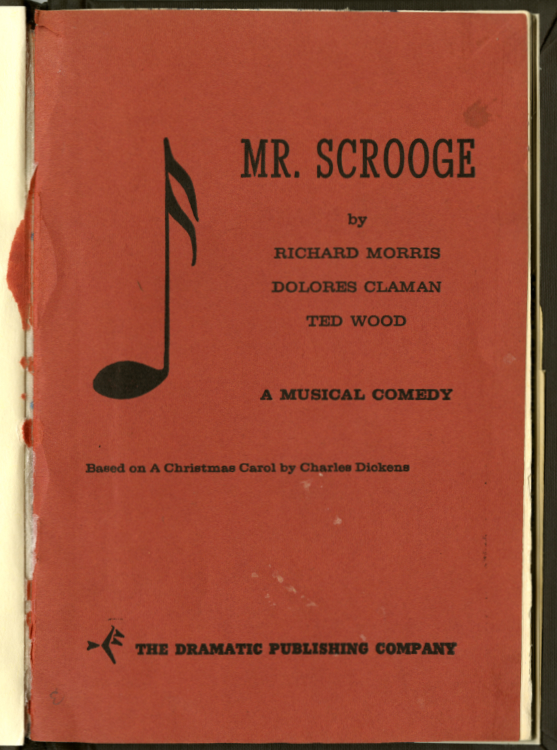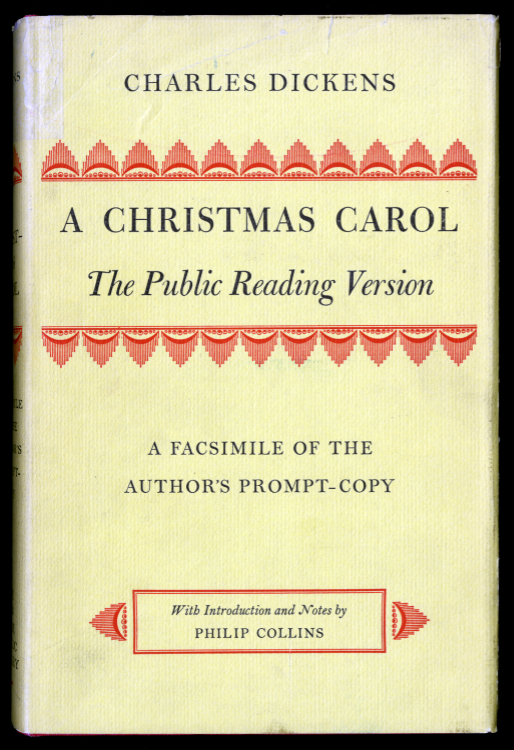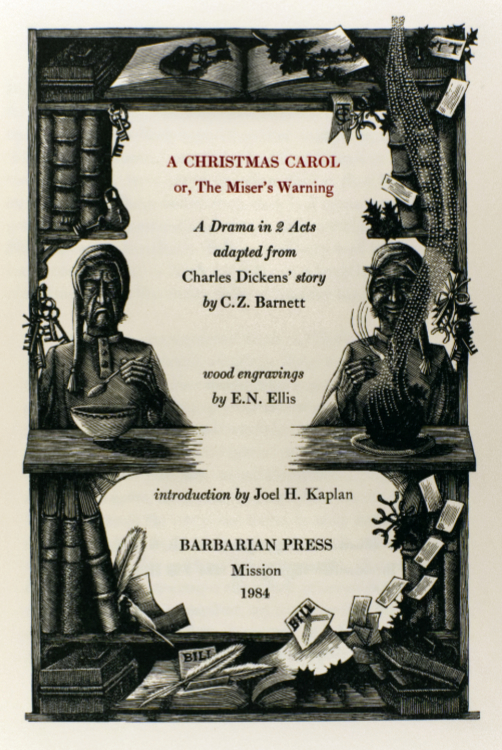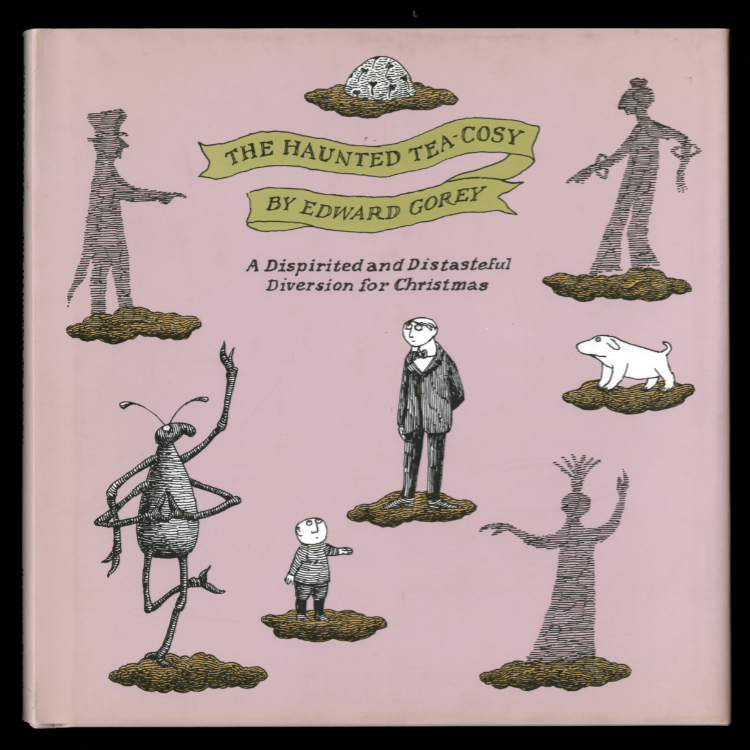Richard Morris and Ted Wood. Mr. Scrooge: A Musical Comedy in Two Acts. Chicago: The Dramatic Publishing Company, 1963.
This musical comedy adaptation includes music by Dolores Claman and lyrics by Richard Morris, Dolores Claman and Ted Wood.
Charles Dickens. A Christmas Carol: The Public Reading Version: A Facsimile of the Author's Prompt-Copy. New York: New York Public Library, 1971.
William A. Oliver, Jr. Collection
This edition reproduces Dicken’s prompt copy, which he used for his readings from A Christmas Carol. The original prompt copy is held in the Berg Collection at the New York Public Library.
C. Z. Barnett. A Christmas Carol, or, the Miser's Warning: A Drama in 2 Acts, Adapted from Charles Dickens' Story. Mission, British Columbia: Barbarian Press, 1984. Limited edition of 350 copies. Wood engravings by E.N. Ellis.
Charles Zachary Barnett (ca1813 – 1849) was an English librettist and playwright. Barnett’s two-act adaptation of A Christmas Carol was first produced at the Surrey Theatre on February 5, 1844, just weeks after the publication of the novella.
Edward Gorey. The Haunted Tea-Cosy: A Dispirited and Distasteful Diversion for Christmas. New York: Harcourt Brace & Company, 1997.
William A. Oliver, Jr. Collection
Edward Gorey’s The Haunted Tea-Cosy is an illustrated parody of Charles Dickens’ A Christmas Carol. The story first appeared in the New York Times Magazine on December 21, 1997. The Haunted Tea-Cosy opens with the miserly Edmund Gravel trying to cut a slice off the fruitcake he received more than a decade ago. A creature that calls itself the Bahhum Bug leaps out from under the tea-cosy and announces itself as “the Spectre of Christmas That Never Was”. The Bahhum Bug transports Gravel to various locations where strange characters undergo irrelevant experiences. When they return, a second creature appears, identifies himself as “the Spectre of Christmas Thar isn’t,” and whisks off on another journey. The third and final creature is the “Spectre of Christmas That Never Will Be.”





